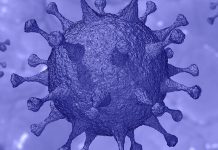That week, the United States announced the release of remdesivir, a new bet against the covid-19. According to Anthony Fauci, director of the National Institute of Allergy and Infectious Diseases (NIAID), the drug has been shown to be effective in reducing the recovery time of patients, bringing positive effects to this worldwide battle.
After chloroquine, specialists took a series of precautions when publicizing the use of new treatments against the coronavirus, given the rush for the medication and inadequate use of the substance, causing general complications and resulting in the lack of the drug for those who need it because they have other conditions. However, the solution of the American pharmaceutical company Gilead - originally developed to fight Ebola - proved to be a strong candidate after disappointments with results of other research.
Of course, doubts do not cease to arise. Therefore, it is necessary to understand that new information regarding the evolution of cases can arrive at any moment. In addition, self-medication is not an option. The proposed treatment must go through a series of steps before proving a valid tool.
What remdesivir is and for whom it is intended
Remdesivir is an antiviral that works directly to eliminate the virus, as well as inhibiting its development and replication. It was tested in the laboratory against several types of these microorganisms, including SARS and MERS, and all the research carried out allowed the tests with Sars-CoV-2 to be accelerated.
If all goes well, experts argue that the novelty is administered to patients who are hospitalized. On the other hand, there are those who worry about the speed of things. “The big picture may not be as spectacular as people think,” said Umer Raffat, an analyst at Evercore ISI.
This is because there is no confirmation that remdesivir will actually end the new coronavirus, only that the symptoms have been alleviated and recovery has been faster. Richard Whitley, an infectious disease specialist, warns that the drug is not effective in advanced stages: “You cannot wait to treat someone until you are in the ICU and using respirators. Then it is too late. There would be no more to do ”.
Despite the precaution, data show that the drug is not dangerous to human health, but, given the ability of any virus to adapt, care must be taken that mutations resistant to something that barely reached our hands do not arise. So, nothing to go out buying any antiviral without medical advice.
“We can’t get to the point where people who need the drug don’t get it and those who don’t need it get it. We have to find ways to ensure the increase in the production of drugs that prove to be effective to ensure that they are distributed according to the need and the benefit generated ”, says Mike Ryan, leader of the World Health Organization’s emergency program.
Next steps
It is important to note that, despite approval, there is insufficient data on the effectiveness of remdesivir against the coronavirus. The study took into account 1,000 patients. Among them, some received the drug and others received a placebo. There were no significant differences in the mortality rate, being restricted to reducing recovery time: from 15 days, it dropped to 11 - which is great news, since the sooner they are released, the more hospital beds can be made available to the population .
Aneesh K. Mehta, one of the researchers involved in the test, points out that, in addition to the inconclusive data, any antivirals will not reduce the impact in the case of chronic disease development, since they are effective only in the early stages. “Such drugs are not ‘silver bullets’. They do not free people from any infection, they just prevent the virus from replicating ”. That is, it is more of a therapy to assist in the treatment than a treatment in itself. This can make a difference to the lives of many patients, but unfortunately, it is not the final response to the disease.
It is not yet known when remdesivir will be available in countries other than the USA, nor if it will be approved elsewhere. After all, the Food and Drug Administration (FDA), the body that allowed use in North American lands, has jurisdiction exclusively over there, and has not granted full approval, only emergency. What’s more, there are no expectations of global distribution or price.
The laboratory responsible for the medicine wants to dedicate itself to the expansion of the current production, reaching 500 thousand treatments in October, 1 million by December and continue to accelerate in 2021, if necessary. In addition, it declared the donation of 1.5 million individual doses, a number equivalent to 140 thousand treatments. The action, of course, has its value, but in the world, there are more than 3 million cases in 185 countries. More is needed.
Dr. Michael Head, a researcher at the University of Southampton, says the pandemic is showing the importance of exploring additional therapies in the emergence of new diseases. “Even if the effectiveness of remdesivir is limited, it can be an additional treatment option, considering that data indicates that many of the hospitalized patients do not recover”. In the meantime, we keep waiting.










